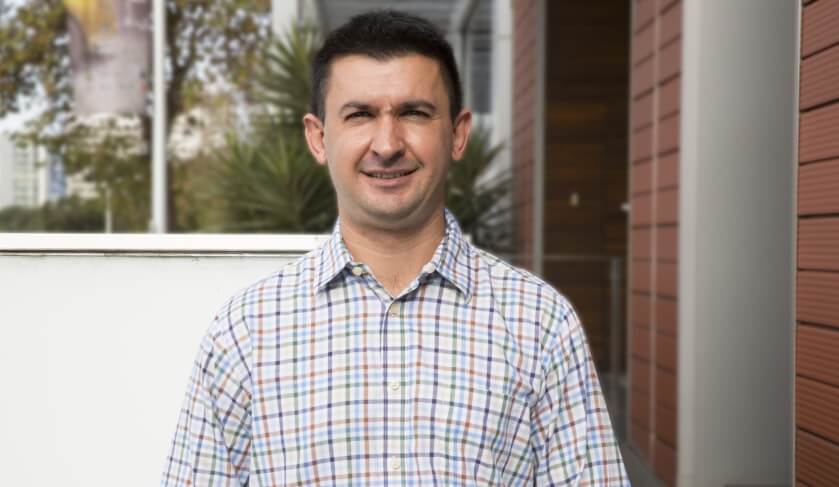Why this property investor will not dabble with off-the-plan properties again
“Frustrating” is how property investor John Martinovic would describe the moment in his property investment journey where he dabbled in off-the-plan space—essentially putting out a large amount of money for something that he cannot see yet.

Smart Property Investment’s Phil Tarrant describes off-the-plan properties as an asset paid for before the development of the property has started.
“You commit to purchasing a property, typically before it's even started building, and you place a small deposit down. The idea is that you buy it at today's prices, and when the property is built… the market should have changed so that it's going to be worth more at that point in time,” according to Phil, who is an avid investor himself.
He explained further: “The issue that a lot of people find themselves in is that what they commit to purchase the property for and what the properties actually worth are two very different things—often, it's negative. [Point number one], they're committed to buying a property which the bank will only lend them less money on… Point number two is should they need to get out the marketplace, they're selling it for less than what they've paid for it.”
While off-the-plan properties can be attractive over time, a lot of investors actually run the risk of being burned in the process of getting burned because of many different factors that can affect the markets, including the unpredictable supply and demand cycles.
John shares how he and his wife “got lucky” dabbling with off-the-plan space, and why they will probably never do it again:
How was your experience buying off-the-plan space?
John Martinovic: It was frustrating because you can't see, touch, or feel anything, and it's out of your hands, right? So, you know you're outlaying a great chunk of cash, and when has ever a development been finished when they said it was going to be done? [But] we were quite fortunate, our first one off-the-plan, we settled right on the whole APRA changes. So what we initially committed to and signed off in terms of financing, that all went out the window.
How did you deal with these sudden changes?
John Martinovic: The rules changed, smack bang when we were supposed to settle. But we were still fortunate enough with our broker’s assistance. He said, "Look, this was committed to quite some time ago. We can't go changing the rules now." So we were quite fortunate to that degree, but it was quite stressful.
I guess it holds your ability to grow your portfolio. For us, it was nearly 12 months, and you go, "Well, what could I have done in that time?" Again, in that 12 months, I basically put all of our investments on hold because you know this one had to go through.
Did the property value up well at settlement?
John Martinovic: Thankfully, yes, it valued up okay. We look back now and we go, ‘There's no way we would have what we have today if we started this, maybe, two years ago because we're seeing every day in the media that banks are tightening, LVRs [loan to valuation ratio] are changing… Everyday, something’s changing with the whole investor segment… It's making it harder.
Would you encourage other property investors to dabble with off-the-plan properties?
John Martinovic: I always say to people, ‘Don't expect this, but you can certainly have this, it's doable… You've just got to get your foot in the door, too.
We're one of the lucky ones… You know, one of the other things people got to think about when buying off-the-plan, [is] if you're buying these high rise buildings, all of a sudden, it could be 100, 150, 200 new units available for rent. So there's competition there to try to get someone in… All these things you've got to be mindful of. You don't really know when you're buying off-the-plan.
What other risks do investors have to face when buying off-the-plan in high-rise buildings?
Phil Tarrant: It's a double whammy, you know. In terms of valuation, your property might not stack up and you find yourself in negative equity. The other side is that you can't get a tenant in there because everyone else is looking for tenants at the same time. What that does is that supply and demand again—if there's more people, if there's more properties than what there [are] people, rents going to come down, it's going to affecting your yield and your property as well.
Should property investors worry more about risks or losing opportunities?
Phil Tarrant: It's not by in large the risk associated with it, it's the loss, it's a missed opportunity cost by chucking all your money into off-the-plan play and tying up a deposit where you could be using that money elsewhere to keep doing other stuff.
Do you see yourself investing in off-the-plan properties again?
John Martinovic: Probably not, knowing what we do, knowing what we know now in terms of it's a big handbrake in the whole strategy thing… I'm always looking for more investment properties. If you find something good, you go, ‘I can't do any because I know in three months or six months... I've got to sit on this first.’ That's your first priority, so I think it just ties you up if you've got that long-term commitment.
Tune in to John Martinovic’s episode on The Smart Property Investment Show to know more about why he decided to be “pedantic” about his property portfolio and why he believes that keeping on top of his finances now will not only safeguard the future of his children but enable him and his wife to be debt-free by 45.
